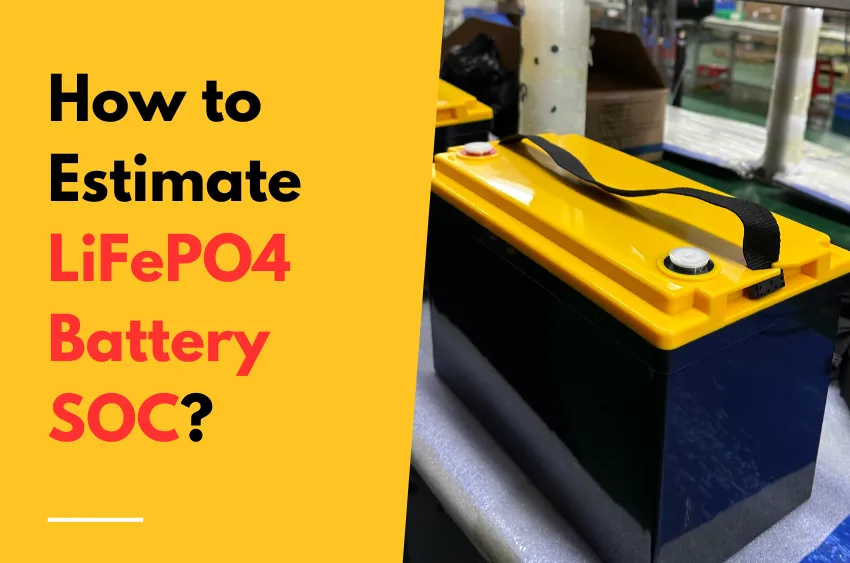
Lithium Iron Phosphate (LiFePO4) batteries have become increasingly popular in recent years due to their high energy density, long cycle life, and inherent safety. However, accurately estimating the State of Charge (SOC) of LiFePO4 battery can be challenging. In this article, we will discuss methods for estimating the SOC of LiFePO4 battey.
One straightforward way to estimate the SOC is to measure the battery’s open circuit voltage (OCV) after allowing it to rest for 30 minutes without charging or discharging. The resting OCV provides a reasonable indication of the SOC for LiFePO4 batteries:
| SOC | Charge Voltage |
| 100% | 13.6V |
| 99% | 13.4V |
| 90% | 13.2V |
| 70% | 13.1V |
| 40% | 13.0V |
| 30% | 12.9V |
| 20% | 12.8V |
| 14% | 12.7V |
| 9% | 12.6V |
| 0% | 10.0V |
This table provides reference voltages at various SOCs. However, slight variations may occur among different LiFePO4 batteries so some calibration may be required. The resting voltage method provides a simple way to estimate SOC without complex circuitry or computation. However, it requires the battery to be at rest which is not always practical.
While the resting voltage method is simple, other techniques can estimate SOC during operation:
– Coulomb counting integrates current to calculate SOC.
– Impedance measurement determines SOC based on conductivity.
– Machine learning algorithms correlate data to estimate SOC.
These methods can account for battery dynamics but require accurate sensors, complex hardware, and computations.
For a straightforward SOC estimate, measuring resting voltage after 30 minutes provides a reliable indication across a wide SOC range. However, other methods like coulomb counting may be required during continuous operation. The optimal SOC estimation approach balances accuracy, cost, and computational needs for the application. Proper SOC monitoring enables safe, efficient use of LiFePO4 batteries.